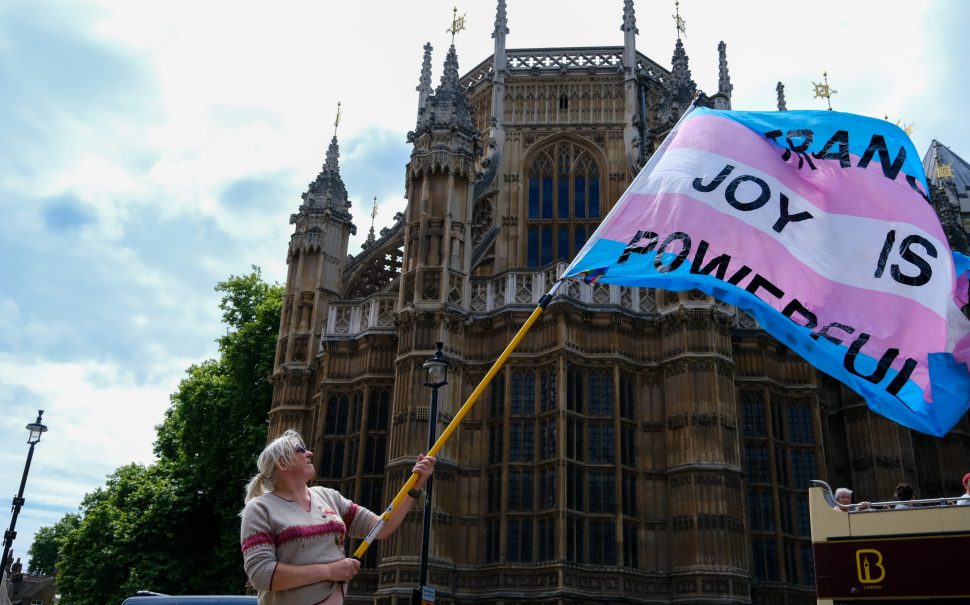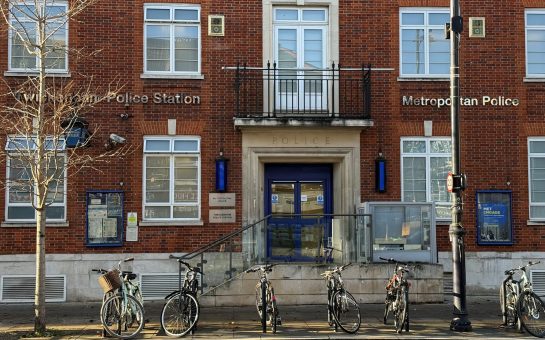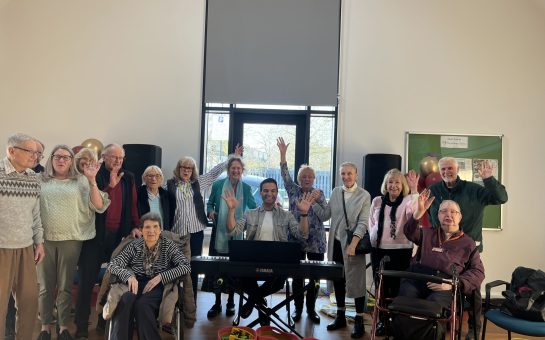Thousands of transgender people and allies gathered in Westminster for a mass lobbying against the Supreme Court ruling, sharing how their lives have changed since.
In April 2025, the UK Supreme Court ruled that the terms “woman” and “sex” under the Equality Act 2010 refer exclusively to biological sex.
Following the ruling, the Equality and Human Rights Commission has published an interim update, stating that in workplaces and services open to the public, trans people should not be permitted to enter bathrooms that do not match their biological sex.
As a result, Palace of Westminster implemented the same “toilet-ban” to their visitors, or they should use gender-neutral facilities.
In response, hundreds gathered in Westminster for the Mass Lobbying arranged by the Trans+ Solidarity Alliance (TSA) on 25 June, to meet with their MPs and bring forward the voices of the community.
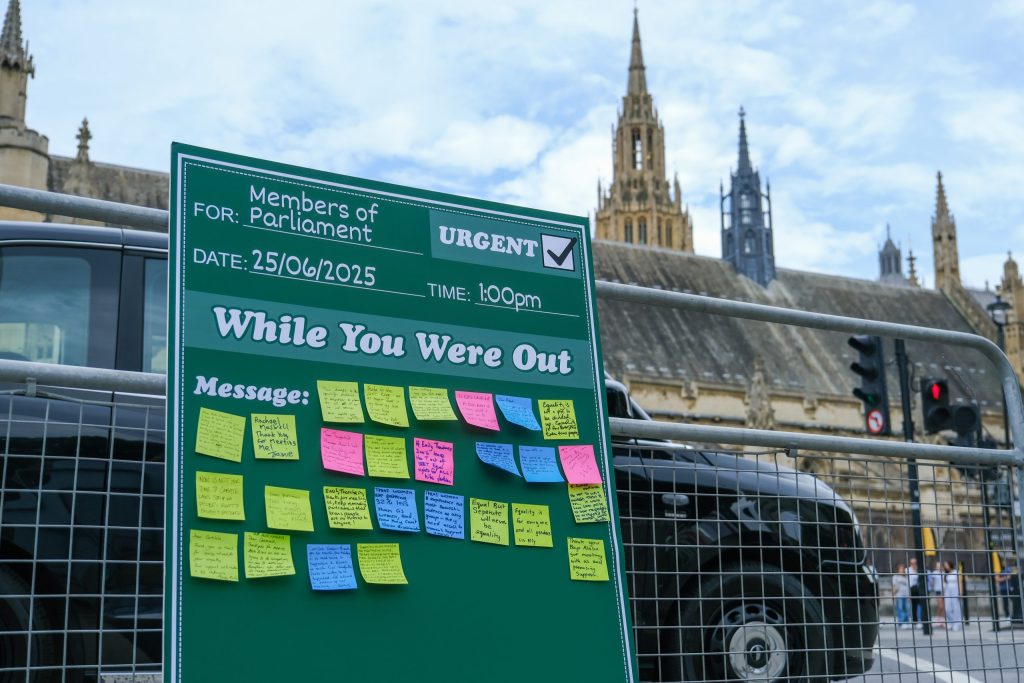
Most dramatic change in life
The ruling came as a surprise to many in the trans community.
Tom, who said he has emailed his MP more than five times without receiving a response, said the decision was completely unexpected.
He said: “I don’t think I have ever experienced such a dramatic change in my whole life, that I spent two weeks crying about, ever.”
In the first two weeks after the ruling was announced, Tom was unable to attend any of the rallies or protests.
He said: “I was not functional, couldn’t do anything except cry, and I was not in the state to go.”
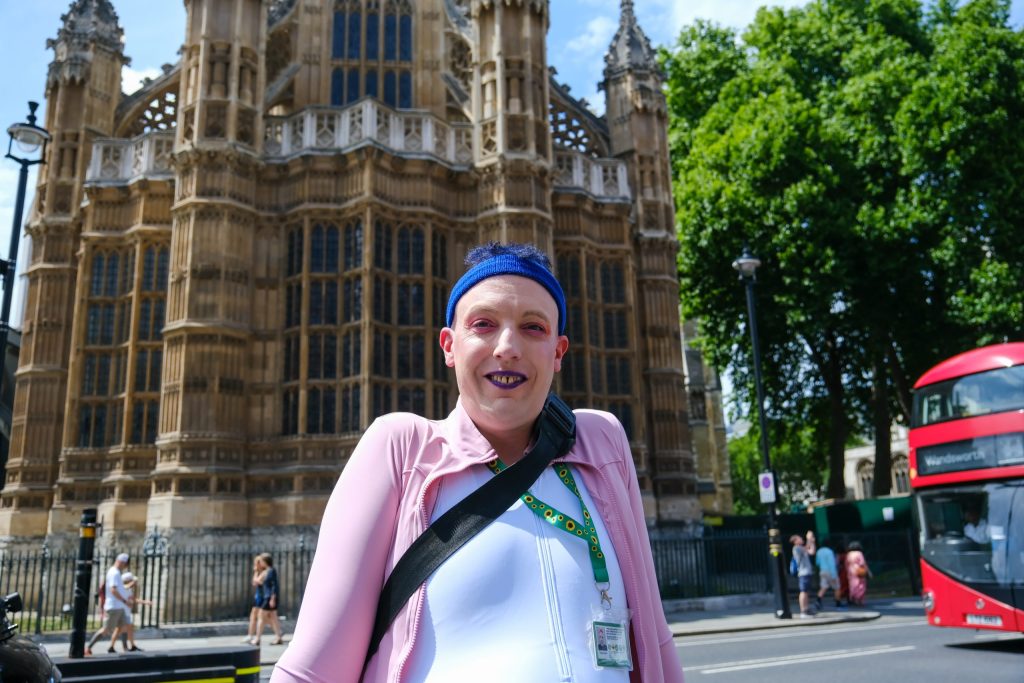
Henry, 23, who stepped out for the first time in more than ten years since coming out, described the ruling as putting the trans community under immediate threat with a magnitude never seen before.
He said: “It is a fuss for nothing, creating even more discrimination.
“Women are being asked inappropriate questions and even harassed before they enter the toilet.
“It was not like that a few years back. We have always had our own problems, but never on this scale, never.”
Claire, who brought her own trans flag to the scene and kept swinging it to show support, said that the ruling had taken no trans voices into account throughout the entire process.
She described it as a one-sided result, and is leading to deeper misunderstanding.
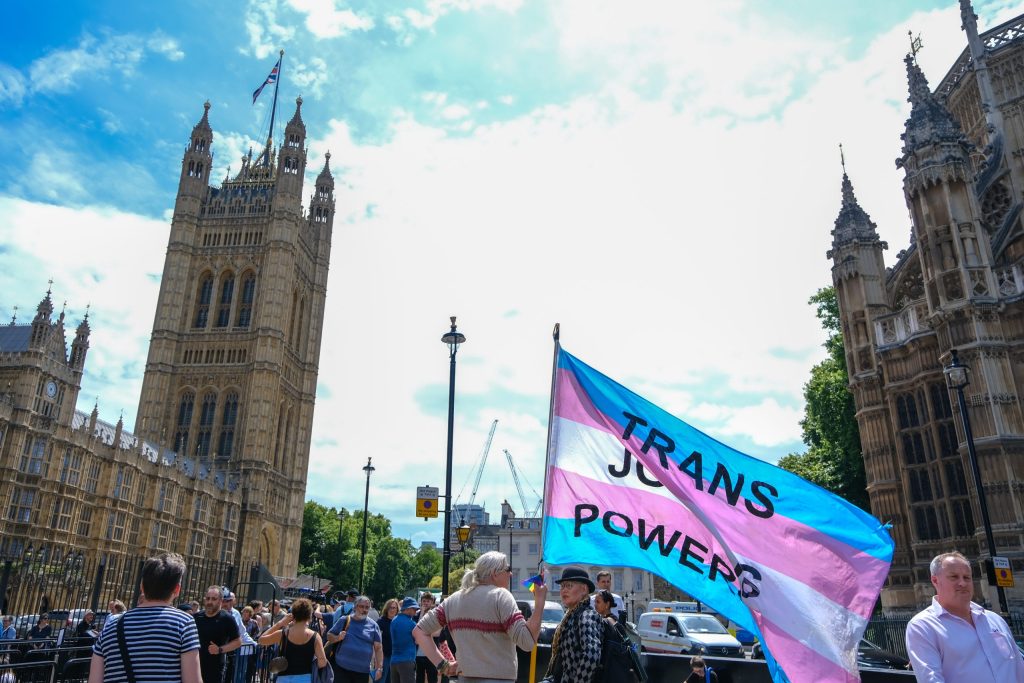
Forceful changes emerged: hate crime, anxiety, self-protection strategies
For many, small but serious changes have begun to affect their daily lives since the ruling, even though most reported that they had already been living with some level of discrimination beforehand.
Claire firmly said she would not change the way she lives, but admitted that she and her friends have not felt at ease since the ruling.
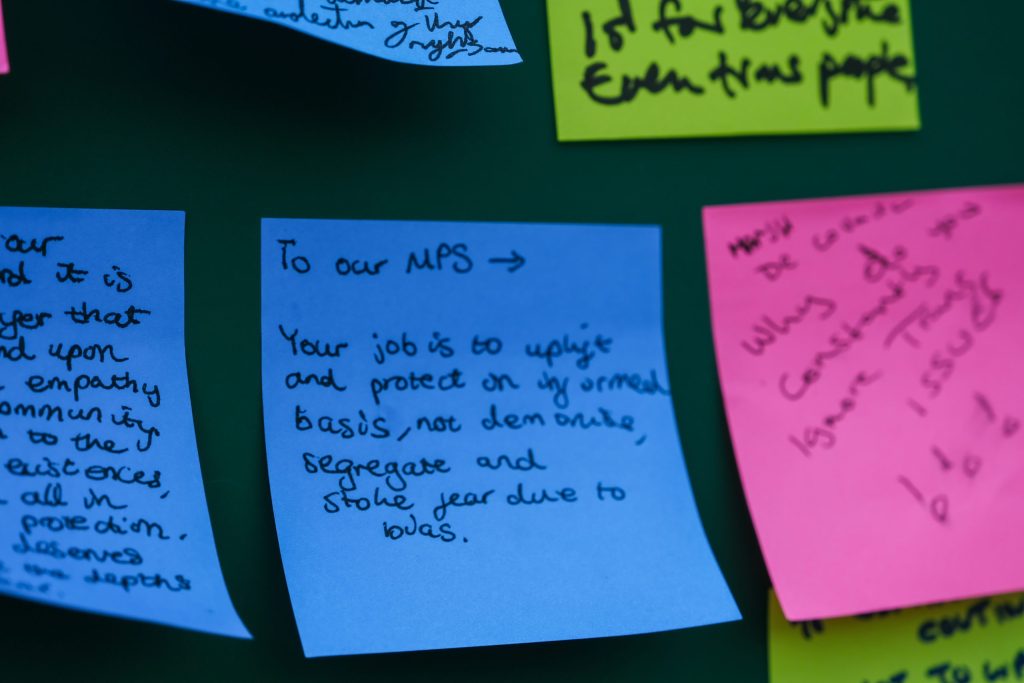
She mentioned rumours that people are taking pictures of trans individuals entering toilets as evidence to report them.
As a result, she has started using voice recording on her phone when she enters public toilets.
Her friends have also become more anxious and have started going out less, herself included.
Henry, who has been using male toilets for the past 11 years without incident, has also started taking precautions.
He now wears something in his pants to resemble a penis for safety, and wears a belt in case someone tries to pull his trousers down.
Tom, meanwhile, has received a large number of hate messages since the ruling, once receiving 12 in just 40 minutes, which carried threatening words saying that they are going to murder him.
He also remembered walking along the High Street when a group of teenage boys on motorbikes rode past him just to shout slurs and abuse, seven times in total.
He asked: “Just because I’m wearing a skirt? What exactly am I doing wrong?”
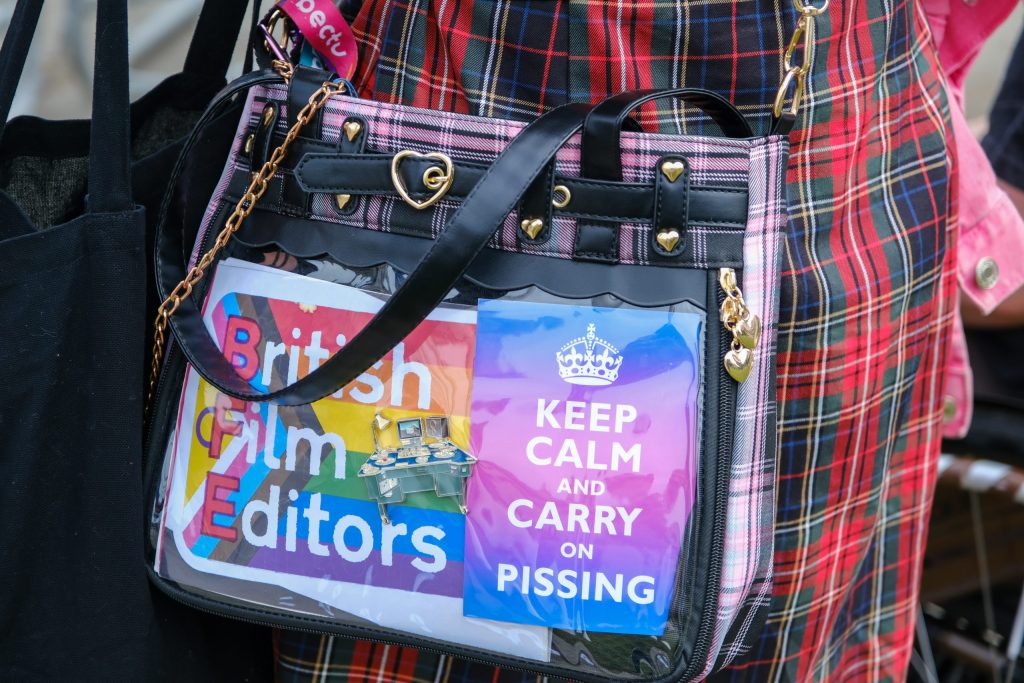
To try but bring no change, is better than regretting
When asked what they hoped to achieve by attending the Mass Lobbying, participants expressed little hope for immediate change, but more of a desire to be seen and to feel better.
Tom stressed that it’s not only trans people who are under threat, but many others who are not in power, and called it a worrying time for the country’s democracy.
He said: “It is best that I give it a shot, than stand here and not do anything.
“I don’t want to tell people in the future, those who are younger than me, that I didn’t try, even if I am lucky enough to be here.
“Just being a person in the crowd, even if it doesn’t feel like much, I believe it can make a difference.”

Tom said he knows not everyone can attend every event, but what matters is that people look out for each other, and it was powerful just to see others refusing to give up.
He said: “We are doing what we can, gathering together, seeing each other’s faces, sticking together.
“I am here because of love. My life is full of love.”
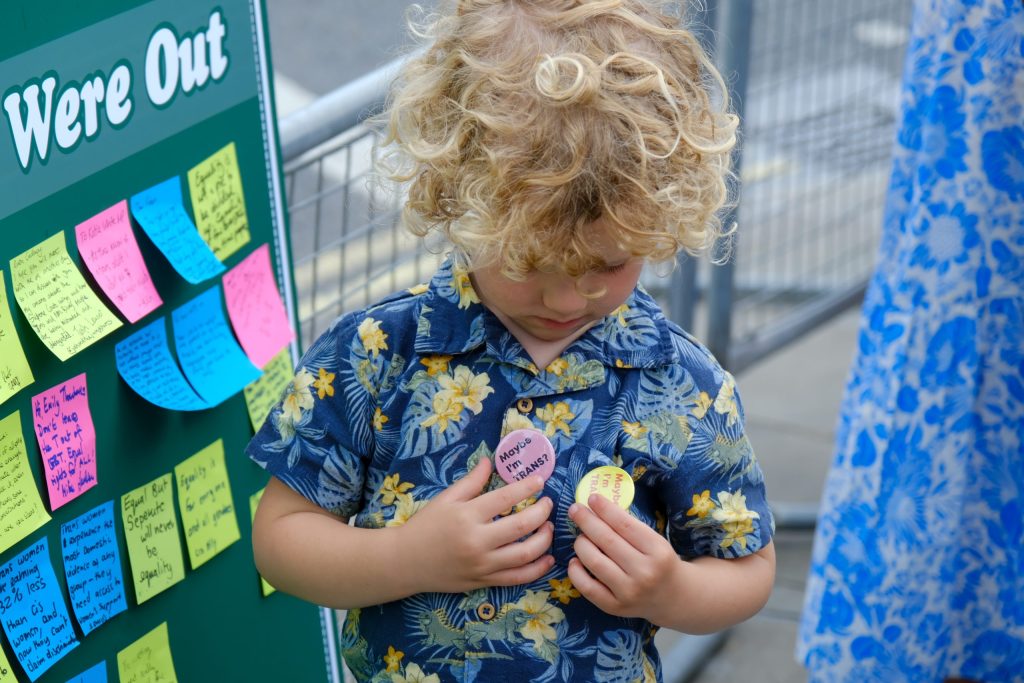
A positive sign for the future
The spokesperson for Trans+ Solidarity Alliance, Jess, said nearly a thousand people attended the lobbying, with some queueing in the heat for more than three hours.
It was estimated that more than a hundred MPs also showed up to engage directly with participants and they described the outcome as a positive one.
Jess said many places and organisations have responded following the ruling and though no group is currently tracking the exact numbers, the effect has been nationwide.
TSA plans to organise more activities in response to the ruling, to keep MPs informed about the deastating effects of the ruling.
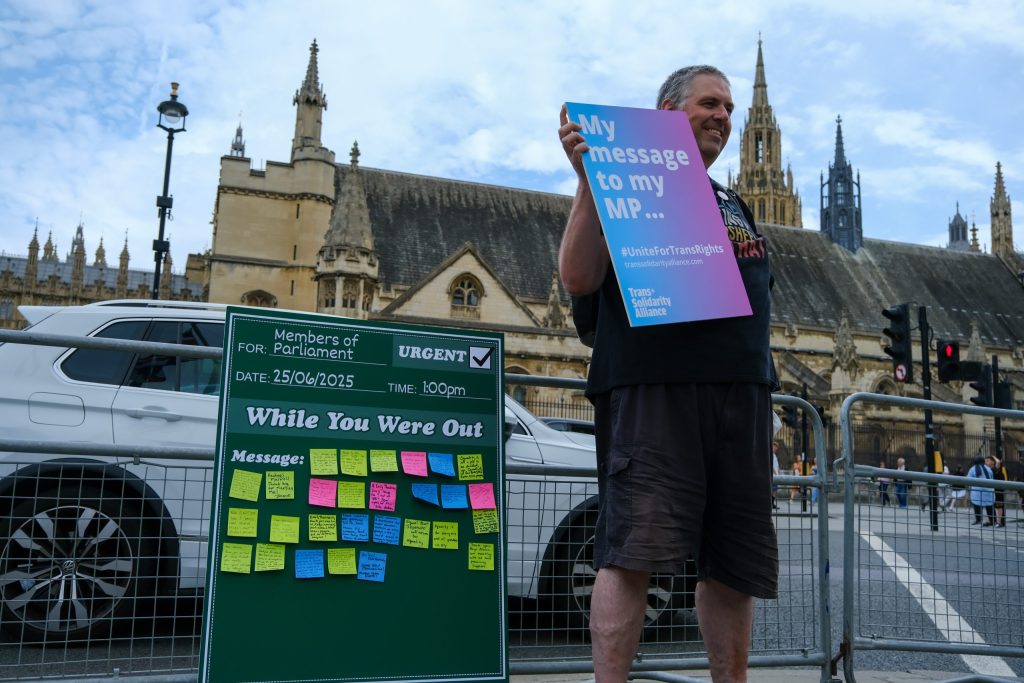
In response to the Supreme Court ruling, Prime Minister Keir Starmer has said: “A woman is an adult female, and the court has made that absolutely clear.
“I actually welcome the judgment because I think it gives real clarity.”
Out of a population of around 66 million in England and Wales, approximately 262,000 respondents said their gender identity was different from their sex assigned at birth, according to the 2021 census.
In Scotland, around 19,990 people identified as trans or having a trans history, according to the 2022 census.
As of March 2025, approximately 9,633 Gender Recognition Certificates have been issued in total since the system began in 2005–06.
We contacted the Government Equalities Office sharing the concerns raised by participants in the mass lobbying to request a response.
No reply was received before publication.
Feature image credit: Hoi Kwan Nathalie Chi
